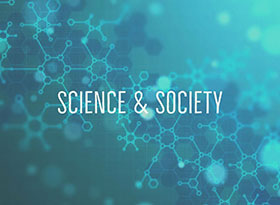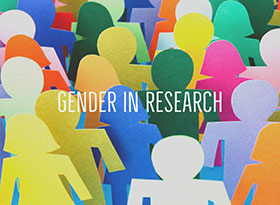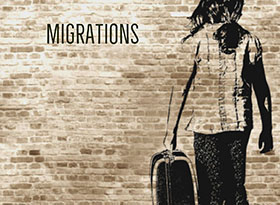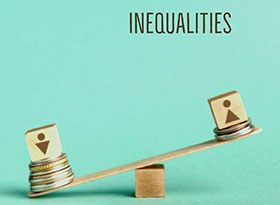
Roma, 31 maggio 2024, ore 9.00-13.00
Sapienza Università di Roma, Dipartimento di Scienze Statistiche Edificio CU002, Aula 1, pianoterra
Donne e scienza: valutare i cambiamenti e progettare il futuro
Convegno in ricordo di Giovanna Declich
Programma
ORE 9.00 – 9.30 SESSIONE INTRODUTTIVA
– Saluti istituzionali (Marcella Corsi, MinervaLab Sapienza)
– Ricordo di Giovanna Declich (Marina Cacace, K&I – Conoscenza e Innovazione)
ORE 9.30 – 11.10 PRIMA SESSIONE: VALUTARE I CAMBIAMENTI
– Marcella Corsi (MinervaLab Sapienza)
– Cristina Solera (Università di Torino)
– Camilla Gaiaschi (Università del Salento)
– Discussione
ORE 11.10 – 13.00 SECONDA SESSIONE: PROGETTARE IL FUTURO
– Tindara Addabbo (Università di Modena e Reggio Emilia)
– Sveva Avveduto (Associazione Donne e Scienza)
– Lara Benfatto (Sapienza Università di Roma)
– Discussione e chiusura dei lavori
Il convegno si terrà in forma ibrida (in presenza e online)
È necessaria l’iscrizione: inviando una mail a marcella.corsi@uniroma1.it
Giovanna Declich (Roma, 20 aprile 1964 – 30 gennaio 2023) è stata una sociologa, formatrice ed esperta in progettazione e valutazione. Brillante e appassionata ricercatrice, soprattutto sui temi dell’uguaglianza e della giustizia sociale, ha partecipato per oltre trent’anni a numerosi studi e ricerche (in Europa, Africa e America Latina) su molti temi, quali la valutazione della qualità dei servizi pubblici, in particolare quelli sanitari; la valutazione dei progetti di sviluppo; i fenomeni migratori; le dinamiche di esclusione sociale e di povertà.
Tuttavia, il suo maggiore impegno è stato quello di studiare e contribuire a superare le disparità di genere nelle loro differenti espressioni: nelle decisioni economiche, nella politica e, con particolare intensità negli ultimi quindici anni, nella ricerca scientifica e tecnologica.
In questo ultimo ambito, ha diretto diversi progetti europei finalizzati a promuovere l’uguaglianza di genere nelle università e negli istituti di ricerca in Italia e in altri paesi europei, lavorando, da una parte, sulla misurazione delle disuguaglianze e sulla identificazione dei problemi alla loro base e, dall’altra, sulle misure introdotte per affrontarli e sui loro impatti.
Ripercorrendo questi suoi ambiti di lavoro, il convegno si articolerà in una sessione introduttiva e due sessioni di lavoro. La sessione introduttiva, si concentrerà sul ricordo di Giovanna e del suo contributo alla ricerca (e all’azione) sul tema dell’uguaglianza di genere nella scienza. La prima sessione di lavoro si focalizzerà sulla sfida complessa delle misurazioni delle disuguaglianze, mentre la seconda si occuperà della progettazione di piani per il cambiamento istituzionale finalizzati all’uguaglianza di genere nelle università e negli istituti di ricerca, e alla discussione dei loro impatti.
Conoscenza e Innovazione si propone, quale obiettivo principale, di contribuire, attraverso la propria attività di ricerca di base e applicata, allo sviluppo di nuova conoscenza sulle società contemporanee e sulle loro trasformazioni, promuovendo un complessivo rafforzamento delle capacità delle scienze sociali di interpretare i processi di cambiamento in corso, di coglierne le linee evolutive e di esplorare le opzioni e gli strumenti a disposizione per una loro gestione efficace.
Conoscenza e Innovazione nasce dalla volontà di un gruppo di ricercatrici e di ricercatori sociali, di proseguire un programma di ricerca sull’evoluzione e il governo della società iniziato già alla fine degli anni ’70 (più informazioni sulla pagina Attività).
Le attività di Conoscenza e Innovazione si sviluppano in Italia, in Europa e al livello internazionale toccando, in un’ottica interdisciplinare, tutti i differenti piani della ricerca sociale, vale a dire quello epistemologico, quello teorico e quello metodologico.
Conoscenza e Innovazione è inoltre impegnata in ambiti contigui alla ricerca, quali la formazione e il capacity building, il networking e la comunicazione scientifica, la valutazione e l’assistenza tecnica, la consulenza e il supporto allo sviluppo di politiche pubbliche.

Nel luglio 2018 Conoscenza e Innovazione ottiene lo Statuto Consultivo Speciale dal Consiglio Economico e Sociale (ECOSOC) delle Nazioni Unite.







